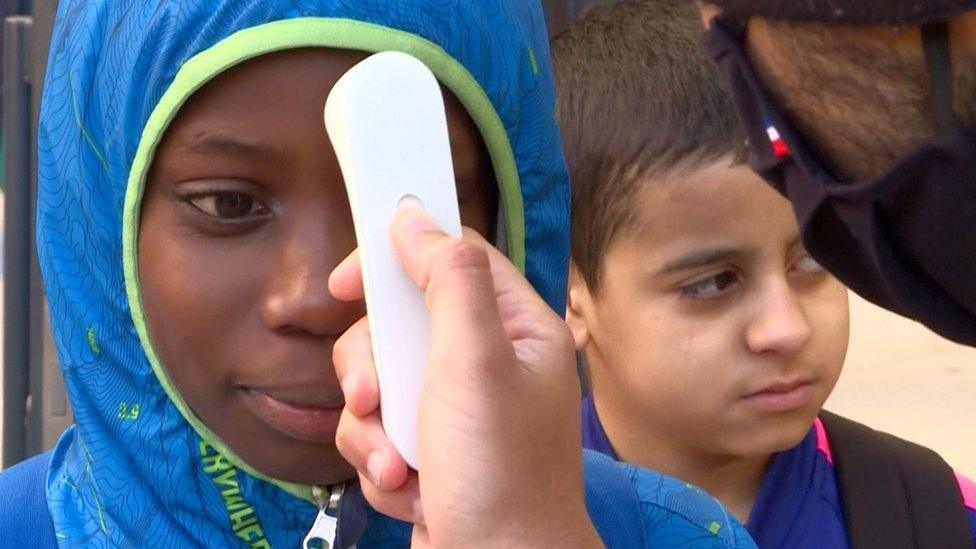Coronavirus: Paris returns to cafe life with new normal
- Published
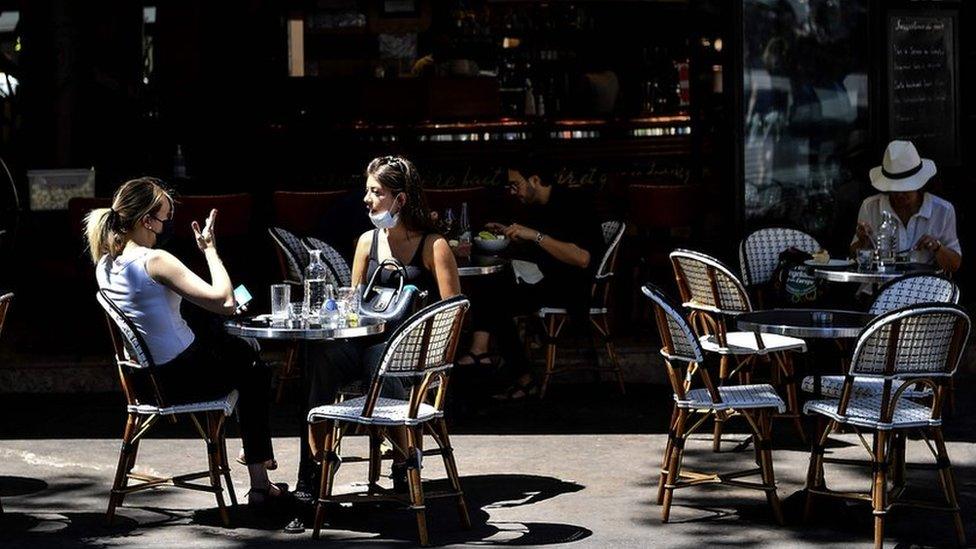
Cafe culture returned to Paris last Tuesday and the French capital rediscovered its joie de vivre
Fear isn't something 88-year-old Mathilde gives in to easily. Sitting on the terrace of her local bistro in Paris, hours after it reopened this week, she sipped a fizzy drink, as the morning sunshine drew perspiration from her glass.
"I've been waiting for this," she said. "To be surrounded by people, not to be alone anymore!"
Mathilde had dressed for the occasion: a printed dress, perfectly styled hair.
Public life here has always demanded a little extra effort. For its cafes and restaurants that means new rules on seating, new cleaning procedures, hand sanitiser everywhere you look.
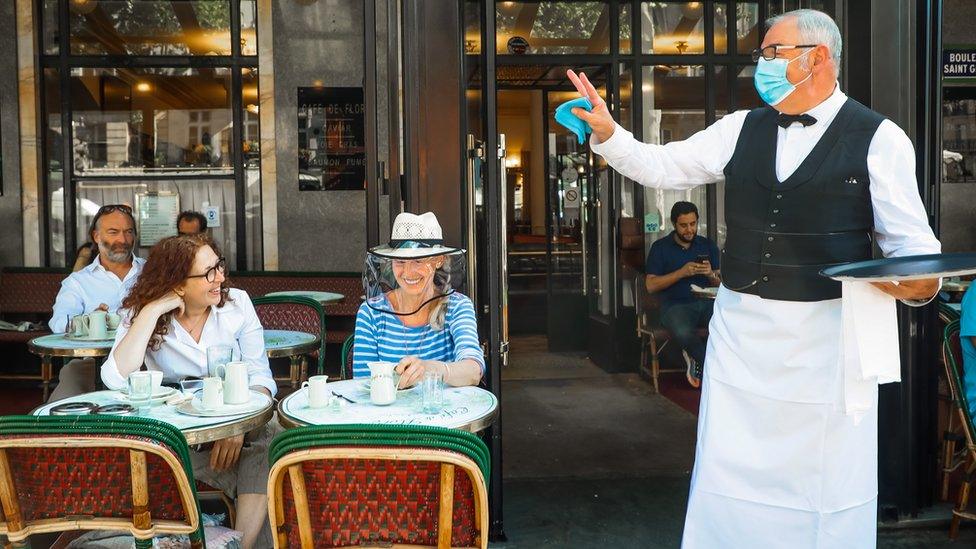
Masks and hand sanitiser are the new normal in Paris now
"Of course I'm scared," said her friend Annie, 10 years younger. "But, you know, at our age we don't have much time left, so at some point we have to just do it."
Why an empty Paris lost its identity
Many people have expressed relief that Paris's bars and cafes are open again; their terraces full.
There was something about the emptiness of this city, in particular, during lockdown that felt especially poignant, says Joan Dejean, an author and historian of French culture, because the destiny of Paris was to be seen: "Paris was intentionally constructed for people in the streets, to be viewed, to be appreciated visually," she told me.
"If there are no pedestrians looking at everything, from the gardens to the great houses to the Ile St Louis, they lose their raison d'être."
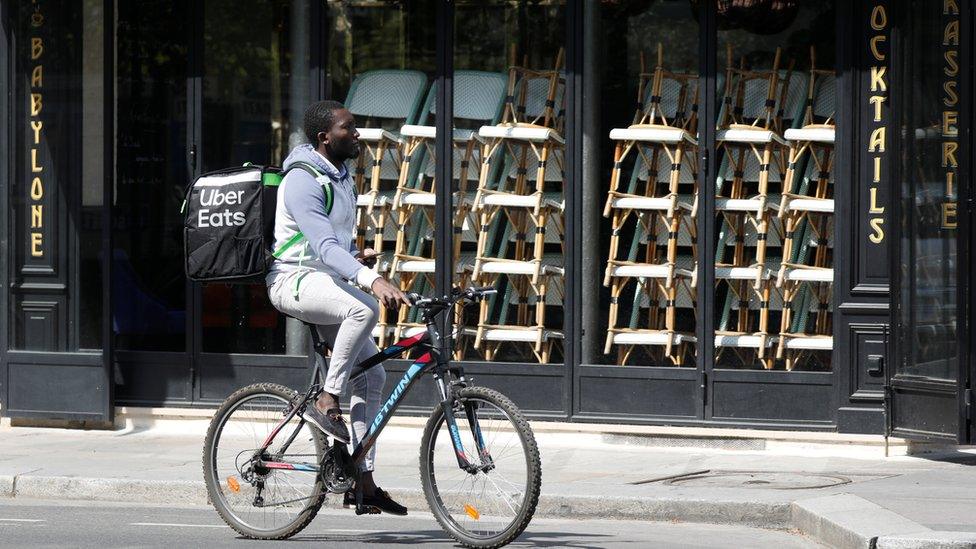
Under lockdown Paris was far removed from its usual bustling pace
During the lockdown, she says, there were two cities that were particularly photographed for their emptiness: Venice and Paris. Venice, to show what the city looked like without tourists; Paris, to show how difficult it was to recognise the city without people enjoying it.
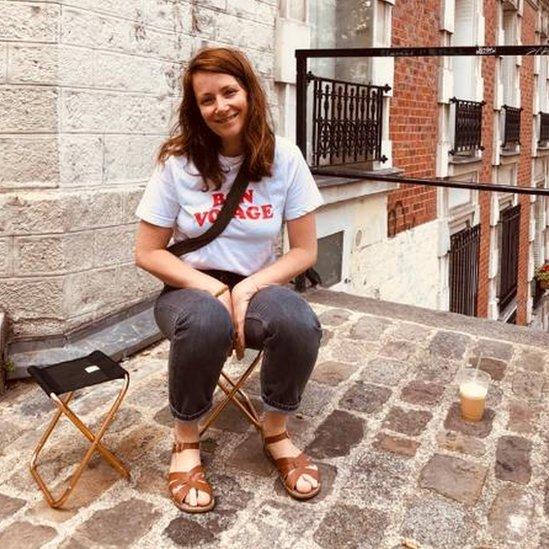
Delphine spent some of the lockdown on a camping chair outside with other parents in Montmartre
"I loved it even more," said Delphine, a long-term Paris resident. "You heard the birds. I had an end-of-lockdown blues; I felt a bit attacked that people were back in the streets."
The gradual return to normality is recreating familiar frictions.
Delphine has two young daughters and lives near the Sacré-Cœur church. As lockdown began to ease, she and other young parents took camping stools into the streets of Montmartre to watch their children play football.
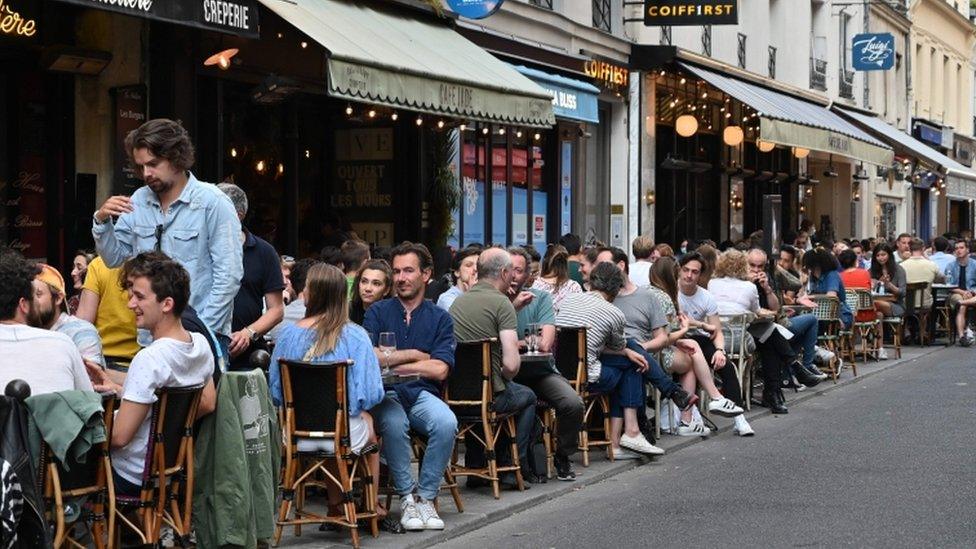
A busy cafe in the rue de Buci, 2 June
Recently, Delphine says, a man leaned out of a window and told them that he was working from home, and to stop making so much noise.
"Behind him we could hear his wife screaming at us to leave," Delphine said. "Clearly they were at breaking point."
Not all Parisians were unhappy
Alane Kadouri, a psychiatrist at the Cochin Hospital in Paris, says he was surprised by the number of people who actually preferred confinement.
"Those who are afraid of social relationships felt secure during the lockdown," he explained. "Those who find love life complicated didn't have to ask themselves questions; and the teens were happy to stay at home to play video games and be on social media."
But, he said, there was a big gap between the experience of ordinary citizens and many nurses at his hospital.
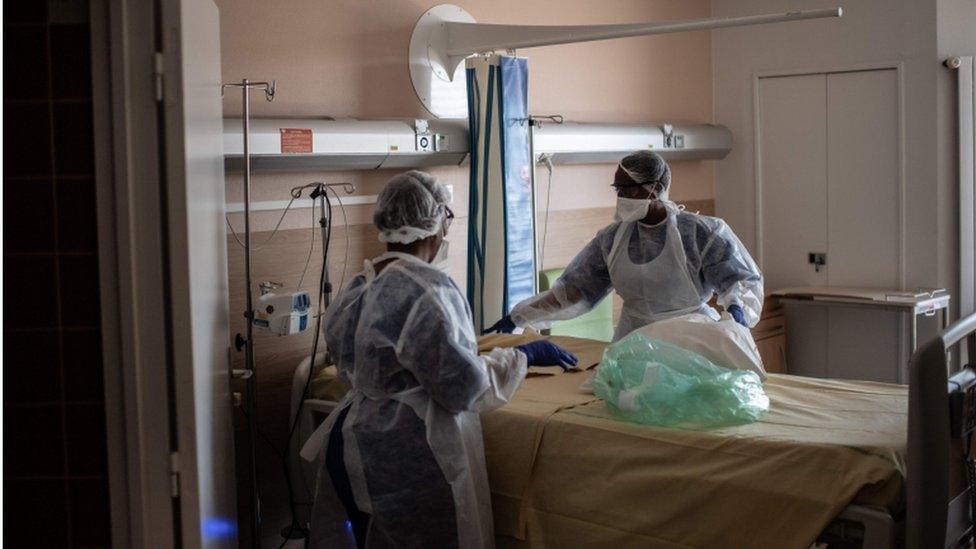
Nurses have been left exhausted by the pandemic and many feel unappreciated
"One in ten nurses was attacked during the lockdown," he said. "Some were asked to leave their flats by their neighbours, because of the contagion risk."
Now normal life is returning, he says, he's seeing some of them break down. "They're all afraid of the second wave, and they're exhausted," he said. "I've heard from 30-year-old nurses who are having trouble climbing stairs."
Who is important in today's Paris?
Rolande Mariel is a nurse, also working at the Cochin Hospital. As pressure on the health system eases, and non-Covid patients return for treatment, she says public support seems to be waning.
"When our patients started coming back they were as aggressive as usual," she said. "I told them it was useless to clap for us every evening if they're going to behave like that! People have short memories. After the Bataclan [terrorist attack], the cops were heroes; now everyone thinks they want to kill us."
This hairdressing salon reopened in Paris in May as France eased its lockdown
As this city begins to come alive again after months of social and economic coma, the sense of who is important to Paris has been reshuffled.
As one researcher put it, who is most valuable to you: a top executive working from home, or the man who delivers food to your mother?
And what was evident during the yellow vest protests of recent years has been brought home starkly again: the people who make Paris work - the rubbish collectors, train drivers, teachers and nurses - can't afford to live here.
"We won't come out of this quite the same," believes geographer Luc Gwiazdzinski.
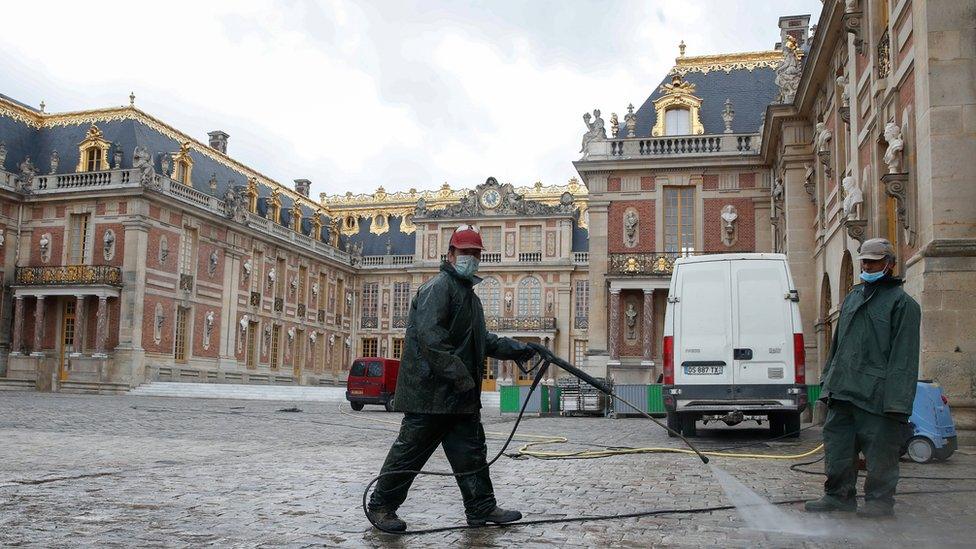
The Palace of Versailles just outside Paris is among the tourist destinations to have reopened
A lot of wealthier Parisians are already thinking of moving out of the capital - as many of them did during the lockdown itself - and teleworking from homes in the countryside.
That may benefit smaller provincial towns, he says, in a country where Paris dominates the French economy. But what does that mean for life in the capital itself?
"Paris is like the phoenix; it will be reborn," he said. "Paris is not just an economic hub, it has a romantic, imaginary world. Its image as the capital of love, of romance hasn't been damaged. But for people living here it was a different story."
- Published24 May 2020
